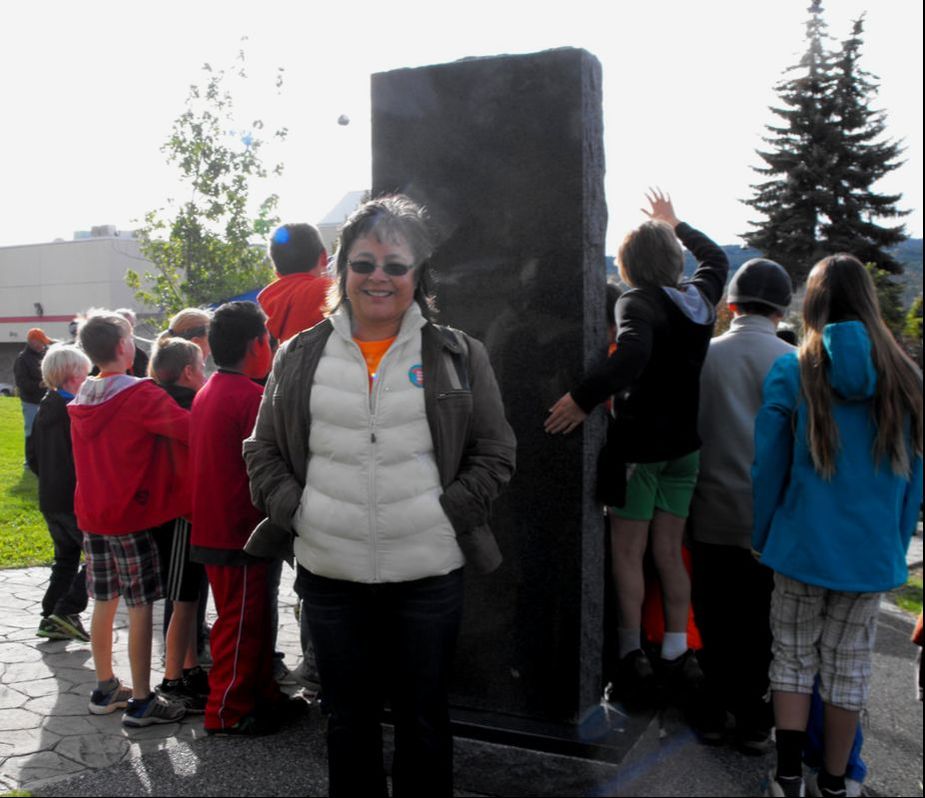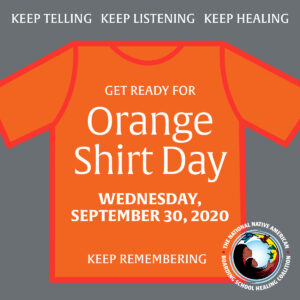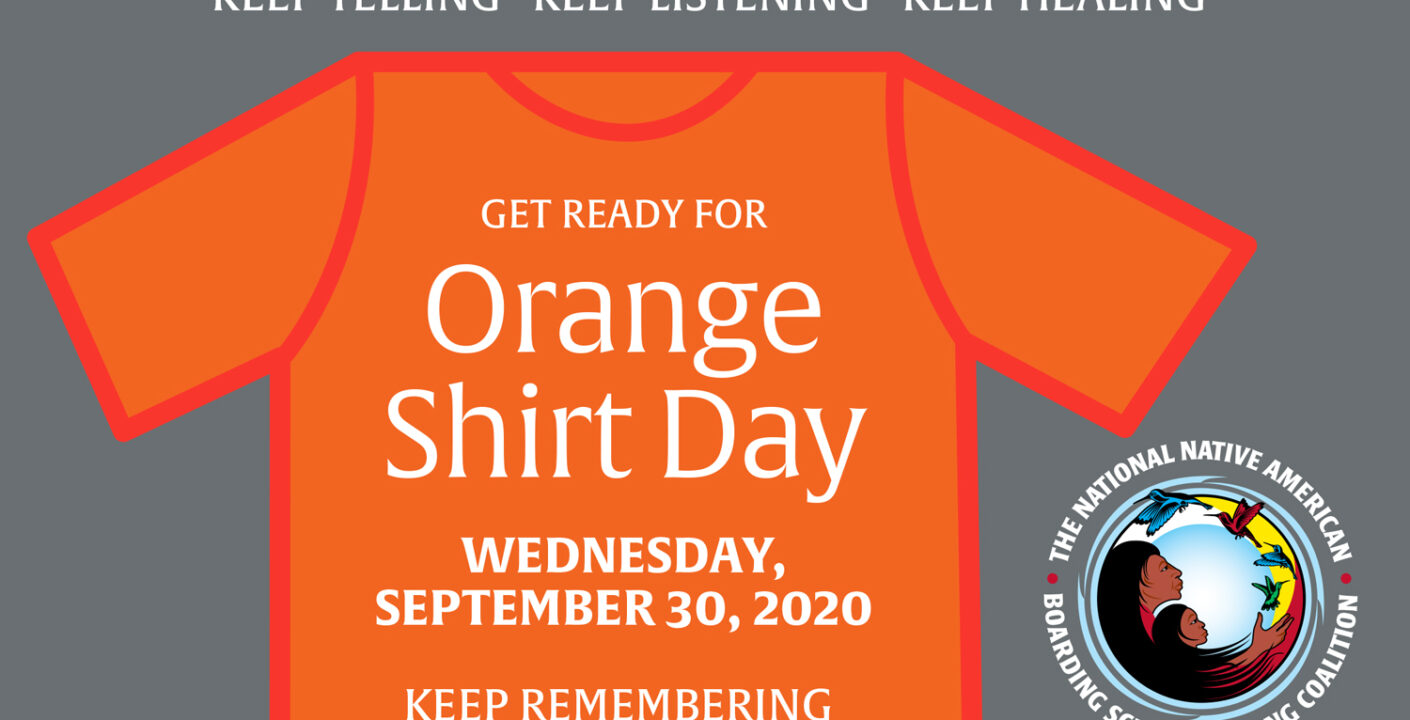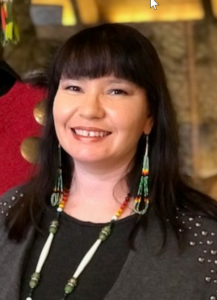This morning, I watched the video of Phyllis Webstad’s [Northern Secwpemc (Shuswap) from the Stswecem’c Xgat’tem First Nation (Canoe Creek Indian Band)] story about her experience in a residential school[i] for First Nations children in Canada. She attended the school for one year in 1973, when she was six years old. She was so excited to be going to school and went with her grandmother to pick out a new orange shirt for the first day of school. As soon as she got to the residential school, however, they stripped Phyllis and all of her Native classmates of all of their clothing. They all were crying, but no one at the school cared because they had other objectives.

You can read more of Phyllis’ powerful story here. It reminded me of so many painful stories that I’ve heard from survivors of Indian boarding schools here in the United States. The stripping of our clothes and our hair at boarding schools is symbolic. We were also stripped of our community, our language, our culture. The children that were torn away from their families and forced to attend these schools regularly suffered physical, sexual, cultural, and spiritual abuse, neglect and torture. Many children never returned home. This was all by design as these boarding schools were centers of forced assimilation for hundreds of thousands of Native children, and their explicit goal was to perpetrate cultural genocide.
The U.S. government and many of the churches that ran these schools have yet to account for the widespread abuse, intentional destruction of culture and community, and trauma they inflicted through this policy. Data and records are still missing. Stories remain untold. Survivors and descendants suffer from intergenerational trauma, and the widespread effects continue to impact Native communities today.
 But it doesn’t have to be this way. Canada has made great strides forward in acknowledging and reconciling with this painful part of its history, showing that 1) not only is it possible, but 2) even though the process may not be easy, the benefit to healing society is immense. Similarly, NABS is working to educate the American public about the legacy of Indian Boarding Schools. Unfortunately, most Americans do not know anything about Indian boarding schools. We are working with institutions around the country and uncovering records to help people see the truth of what happened, and we are helping survivors tell their stories as a first step in their healing journey.
But it doesn’t have to be this way. Canada has made great strides forward in acknowledging and reconciling with this painful part of its history, showing that 1) not only is it possible, but 2) even though the process may not be easy, the benefit to healing society is immense. Similarly, NABS is working to educate the American public about the legacy of Indian Boarding Schools. Unfortunately, most Americans do not know anything about Indian boarding schools. We are working with institutions around the country and uncovering records to help people see the truth of what happened, and we are helping survivors tell their stories as a first step in their healing journey.
Sharing stories about their experiences at boarding schools can be difficult for some survivors. Many are not comfortable reliving painful experiences and many Americans are not comfortable hearing these stories and learning about the brutality that was inflicted by our country. But telling stories is one of the ways that we can heal, and listening, acknowledging, and sharing those stories is one of the ways that we can help support healing, both for survivors, and for the country.
The annual Orange Shirt Day was originally envisioned by our relatives in Canada as a way to commemorate the residential school experience, remembering the children who never made it home, while also witnessing and honoring the healing journey of the survivors and their families. It is a commitment to the ongoing process of reconciliation.
On Wednesday, September 30th, we invite you to join us in participating in Orange T-Shirt Day by wearing an orange shirt to remember these children, posting about it on social media, and discussing why you are doing so with your friends, family, and networks. Thank you for your help in acknowledging the stories of boarding school survivors and their families and remembering those that didn’t return home. Miigwich.
Christine Diindiisi McCleave (Turtle Mountain Ojibwe)CEO
(Bio)
[i] 1Indian boarding schools, as they are known in the United States, are usually referred to as “residential schools” in Canada.

